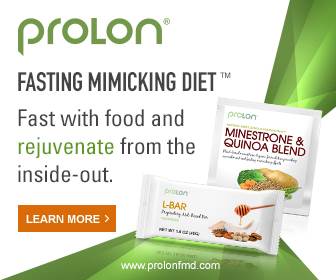Although pregnancy is an exciting time, the first trimester can be pretty rough in terms of what is appealing. Many (most) women experience extreme fatigue and nausea and are repulsed by foods they used to like. One of my pregnant clients can’t stand the thought of chicken while another finds beef (a food she has always liked) revolting. One common trigger for the nausea (aside from hormones) is the blood sugar fluctuations that come with pregnancy. By eating 5 smaller meals daily in regular intervals, you can stave off some of the sickness and stabilize blood sugar levels.
When you’re feeling crappy, food is obviously the last thing you want to focus on, but sipping bone broth (click here for the recipe. Don’t want to make your own? Order it!) or getting some good carb (easy to digest, palatable stuff like toast with nut butter or sweet potato with butter, for example) and protein can help you feel better. And lots of ginger tea! There is also evidence that supplementing with magnesium can help morning sickness. Some of my clients have had much luck with transdermal magnesium.
The Pregnancy Diet
1) Organ meats! Liver! If you can stomach it, liver is a nutrient-dense superfood. Click here for a recipe roundup with the best ideas on how to sneak liver into your diet. Always buy organic liver. It may be a few months until you can stomach the thought, but some women can’t get enough– they crave it! The key is to sneak it into other foods, like burgers or meat sauce. Try this delicious pate recipe. Or if you just can’t stand the thought, I recommend this dessicated liver supplement. A word of caution though: liver is very high in vitamin A, and too much A can be toxic to an unborn baby. So you’ll need to watch your intake, especially if you’re taking a prenatal that contains vitamin A. An ounce of liver a week is fine.
2) Fermented foods. Do you tolerate dairy? If so, drinking fermented dairy products like kefir will keep your gut healthy. And healthy probiotics in your gut are essential for your baby’s immune system. As your baby passes through the birth canal, she receives your gut microbiome to build her immune system. Try goat or cow kefir. Also include raw kraut and beet kvass for probiotics, especially if you don’t tolerate dairy well. This coconut water kefir is perfect for those who can’t do dairy. I recommend this probiotic for pregnancy.
3) Fish oil for fatty acids and antioxidants. Good fats are absolutely essential for fetal brain development.
4) Other good fats: Butter (from grass fed cows. I like Kerrygold or cultured butter)– cook with it or spread it on toast as a bland snack if you’re not feeling well. Coconut oil, olive oil, and avocado & avocado oil are all great. I buy this coconut oil by the tub–54 ounces!.
5) Egg yolks, also great for fetal brain development. Eggs are high in choline which is excellent for brain health.
6) Animal proteins rich in the omega 3 fatty acids, like wild salmon, black cod, and sardines (wonderful because they’re also rich in calcium). Leafy greens, chia seeds, and walnuts are ok sources too. Grass fed beef and lamb are excellent protein sources also.
7) Drink bone broth, or use as a base for soups. If you don’t want to make your own, you can order high quality, organic bone broth here. Shred leftover chicken in the broth with spinach and cooked carrots for a nourishing yet easy to digest meal if you can’t stomach eating anything else. Also, bone broth is a great source of collagen that may help prevent stretch marks. Good for calcium and minerals, too.
8) You can find all the prenatal nutrients, including fish oil, in these prenatal packs that include the healthy and natural form of folate.
Please make the base of your diet wonderful plant foods of all types: leafy greens, starchy root veggies, cruciferous, sea vegetables like toasted nori (wrap around salmon and avocado for a good snack), and beans/legumes if you can handle them.
Putting it all together.
Breakfast could be 3 egg yolks (or whole eggs) scrambled in butter with spinach and mushrooms. Side of raw kraut. Mug of bone broth mid morning.
Snack: fruit with almond or walnut butter.
Lunch: leafy greens (kale, chard) with wild salmon and chopped veggies, or a mixed green salad topped with salmon. Lunch is easiest when it’s leftovers from the previous night!
Snack: Organic roast beef wrapped around avocado.
Dinner: Roast chicken legs (you want the dark meat) or lamb shank with sweet potato or wild rice (high in protein & minerals!) and broccoli stir-fry.
Evening snack: coconut flour muffins toasted and topped with butter or coconut butter.
Lastly, for nausea, try Preggie Pops. Make smoothies with unprocessed whey protein, like Designs for Health whey protein powder (or use this PurePaleo protein if you don’t do dairy), coconut milk, nut butter, and spices like cinnamon and ginger for a quick and tasty meal to help stabilize blood sugar. Bonus: cinnamon is a great blood sugar regulator + ginger eases nausea. Click here for more smoothie recipes.
Resources
My pinterest board filled with helpful articles on holistic pregnancy & baby
The Nourishing Traditions Book of Baby & Child Care
Essential oils like peppermint and lavender can be wonderful to combat indigestion and promote relaxation during pregnancy. NOTE: not all oils are recommended during pregnancy, so please check with your healthcare provider!

Mary Vance is a Certified Nutrition Consultant and author specializing in digestive health. She combines a science-based approach with natural therapies to rebalance the body. In addition to her 1:1 coaching, she offers courses to help you heal your gut and improve your health. Mary lives in San Francisco and Lake Tahoe in Northern California. Read more about her coaching practice here and her background here.








Mary, this is such a great post! Thanks for putting together something so informative and that will help tons of mama’s. Can’t wait to share it with my readers!
Thanks so much Kelly! 🙂
All the mentions foods are the best for the mother too!! Maybe the healthiest. But I read on meany places about the danger of consuming chicken liver while pregnancy because of the vitamin A in it and you didn’t mention Any of it, same for agg yoak that is not well done, I would love to understand